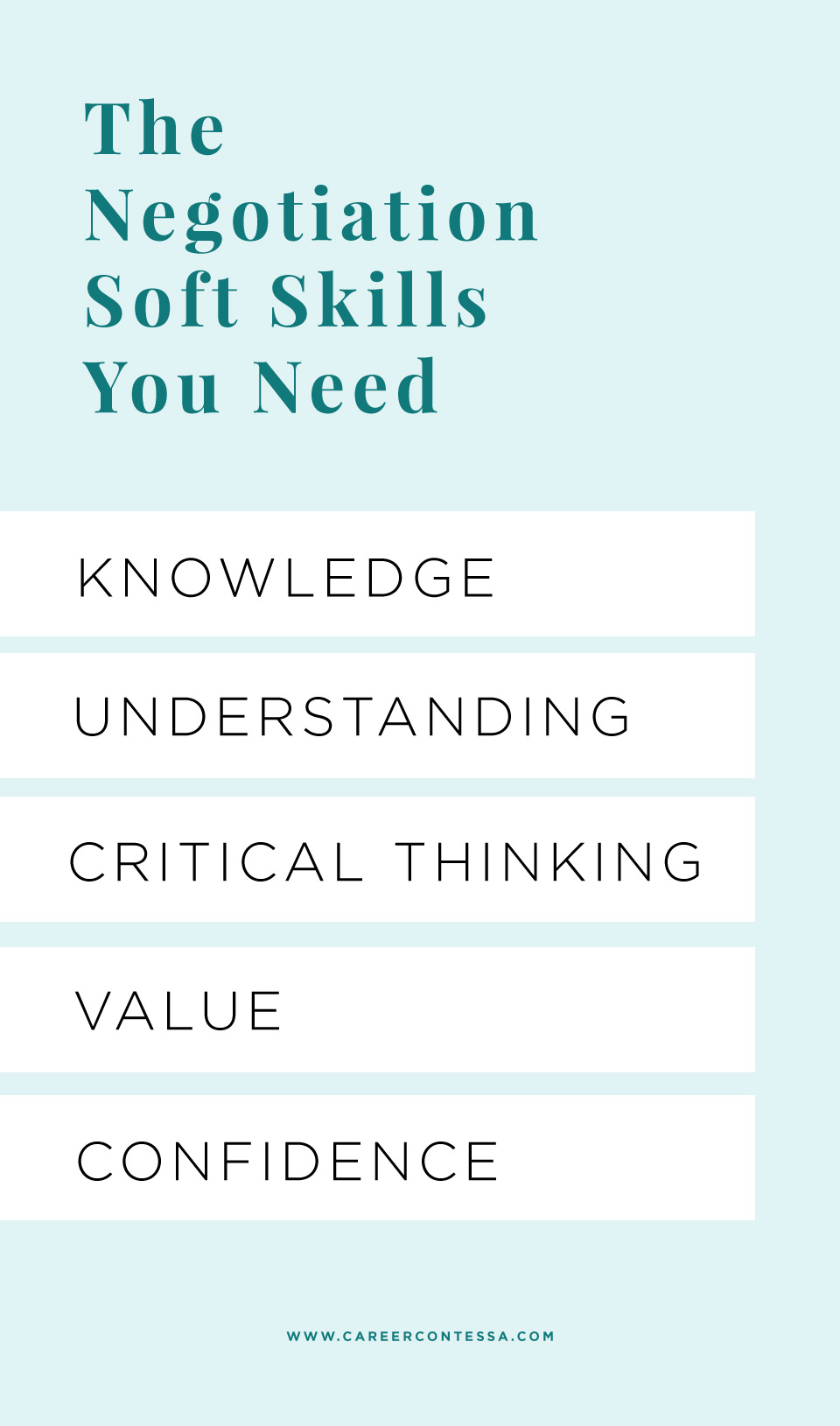Negotiation is one of the most important soft skills you should have at work. If you don’t already have a strong negotiation skill set, don’t worry.
Whether you’re negotiating an annual software contract for your lean startup or you’re
asking for a salary increase, negotiation—in one form or another—is almost a daily occurrence in the workplace.
If you work in sales and marketing, your negotiation strategies are at the forefront of your entire career. They can help you make better deals, create meaningful leverage, and put you in a position to meet (and exceed) the bottom line.
Negotiation skills come naturally to some people. These were the shrewd business kids who were able to convince you to give them your priceless Dunkaroos in exchange for a measly apple sauce in kindergarten.
Unlike many soft skills that are more innate, negotiation can be taught. In fact,
a study by UC Berkeley found that people who believed negotiation could be learned outperformed (and out-negotiated) those who regarded negotiation as an innate, heritable trait. In addition to that, this study proved that, in negotiation, practice makes perfect. And with over eight trial negotiations, performance improved steeply.
The 5 Critical Negotiation Skills
So how do you teach negotiation? Do you stand in the mirror and practice bartering for a bunch of bananas? Do you hit up local estate sales and haggle for a dining room set? Perhaps. However, possibly the most important aspect of learning and growing your negotiation skills is by enacting a growth mindset.
There are many well-known negotiation tactics, like
BATNA and
ZOPA, but you don’t necessarily have to get your MBA to learn how to be great. There are five critical skills that go into any negotiation process. Use this as your introduction to negotiation training.
1. Knowledge
No matter how smooth of a negotiator you may be, you always want to go into a negotiation with knowledge. In short, to be ready for a home-run negotiation, you will want to arm yourself with as much knowledge on the subject as humanly possible.
The more you know, the more you can bring to the negotiation table. With a large bank of knowledge, you can establish and maintain good rapport, be prepared for any scenario, and swiftly answer any questions without a moment of hesitation or delay.
- Know what you want out of this negotiation
- Know what you don’t want or need out of this negotiation
- Know where your dealbreakers lie
- Know the data and numbers you need to back up your claims and ideas
For example, if you are going to a car dealership to buy a car, you are going to run into some of your most skilled negotiators—car salespeople.
Don’t come in underprepared, or they'll bury you under a mountain of fees and features you don’t need. Do you really need those heated seats if you live in Southern California? Know what you actually want in a car. Know what you don’t need. Know what other dealers are offering. Know when you need to walk out. Know that you ultimately
have the power to say yes or no.
Recognize when the negotiation is veering away from the must-haves into an area of nice-to-haves. Don’t settle for the $300/month payment with the heated sets, rear-view camera, and self-starting ignition. Instead, get what you came for—a $250/month payment without all the unnecessary bells and whistles.
By preparing yourself with the requisite knowledge beforehand, you are sure to enter any negotiation on top.
2. Understanding
Whether you're entering a one-on-one negotiation or a negotiation with a group of people, you will need to understand the other party. Understanding is like the empathetic cousin of knowledge.
Understanding means listening to the other party’s point of view. Any successful negotiation requires a clear understanding of the opponent.
According to
a study by Psychological Science, perspective-taking, or understanding an opponent’s interest, thoughts, and behaviors will set a negotiator up for success.
Aside from understanding what your opponent wants out of this negotiation, perspective-taking allows you to speak your opponent’s language. For example, if you are looking to purchase a software suite for your graphic design department and you know your opponent (maybe the CEO?) loves the graphic design of a competitor, use that. Explain to her that, with this software, you can create and surpass the slick graphic design in a way your current software does not allow.
Make it your business to learn all that you can about the other party.
- Understand what they value
- Understand what they do not value
- Understand their motivations
- Understand their interests, hobbies, and core values
Beyond understanding, your body language, eye contact, posture, and active listening will play a huge role in any negotiation. Use your non-verbal communication to show that you're really understanding in your next negotiation.
3. Critical Thinking
Negotiation requires a good amount of critical thinking, both in preparation and in action. Critical thinking may seem like a general term, but it’s important.
A lot falls under the
umbrella of critical thinking—including questioning, probing, analyzing, testing, and exploring. From there, a skilled negotiator will use the information to both ask questions and respond to rebuttals in a systematic manner.
So why is critical thinking so important in negotiation?
Well, remember that example about entering a car dealership and being offered bells and whistles that you don’t necessarily need? By employing critical thinking before and during a negotiation, you will be equipped to differentiate a good outcome from an unnecessary or unsatisfactory outcome. Use your critical thinking in any negotiation.
Try playing devil's advocate or even playing out a good cop and bad cop scenario to explain how things could work or how they could fall apart.
4. Value
Don't jump at the first number.
Before entering any negotiation, especially one that directly involves money spend, know your numbers. Keep in mind that dollar amount does not always correspond directly with actual value.
“Price is what you pay; value is what you get.”
-Warren Buffett
Value is different from cost. Cost is, of course, the dollar amount that is attached to something like a pay increase, a purchase, or an acquisition. Value is the continual growth and offer that comes afterward. Value is the accompanying importance, usefulness, and dividend from an investment.
For example, if you are
negotiating a pay increase, focus on the value of your work rather than the dollar sign attached to the actual increase. Besides that, have numbers in your head and be ready to counter offers when they don't appeal to you.
Prepare figures that reflect the value of your work, the growth you achieved, and your detailed plans for further growth. Coming into a negotiation flaunting your value is sure to make a huge impression on your opponent.
5. Confidence
You’ve built your knowledge base. You have a deep understanding of your opponent. You have engaged in deep, critical thinking. You have analyzed (and re-analyzed) the numbers and value involved.
Confidence—especially
self-confidence—is one of the more difficult
soft skills to teach. Going into any negotiation with a visible lack of authority is almost guaranteed to fail.
Now, make sure you have the confidence to go into this negotiation with your deep comprehension. If you followed all the previous steps, your confidence should come naturally—you know more than anybody on this topic—even your opponent.
One of the most important traits of a good negotiator is knowing when to walk away from the deal without making an obscene amount of concessions—and to feel confident and secure in doing so.
Once the negotiation is veering away from your intended goals, you will know to walk away. From there, you can decide whether to re-enter negotiation at a later date or whether to drop it altogether and work with someone more aligned with your ultimate goals.












